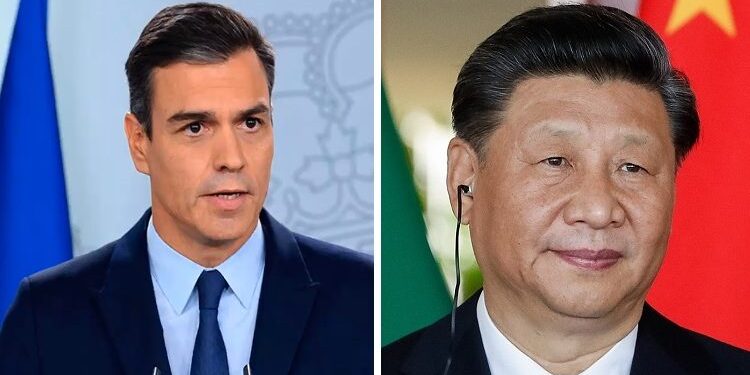Eduardo González
The President of the Government, Pedro Sánchez, will begin a trip to China tomorrow that will have a double (and important) economic and political component and that will serve as an outpost for the visits that other European leaders will soon make to Beijing to address President Xi Jinping’s proposal about the war conflict caused by Russia in Ukraine.
Sánchez’s trip will be a pioneer in two very specific aspects: it is the first visit by a Western leader since Xi’s recent visit to Moscow to meet with Russian President Vladimir Putin, and the first meeting of an international leader with the newly appointed Chinese premier, Li Qiang.
Besides, Sánchez will be followed, in the near future, by other European leaders: the president of France, Emmanuel Macron; the President of the European Commission, Ursula von der Leyen; the Prime Minister of Italy, Giorgia Meloni, and, most likely, the High Representative for Foreign and Security Policy of the EU, Josep Borrell. According to Moncloa sources, there are many EU leaders interested in seeking ways of reaching agreement and a positive agenda with China in the face of international challenges and in conveying his opinion to Xi regarding his peace proposal in Ukraine.
In the opinion of the Spanish Government, as Pedro Sánchez already commented last week in Brussels, the twelve points of the Chinese proposal have some interesting elements that even coincide with some points in the peace plan of the President of Ukraine, Volodimir Zelensky, such as the reaffirmation of the principle of territorial integrity of States and the resounding rejection of the use, and even the mere threat of use, of nuclear weapons. Besides, the Spanish Executive considers it positive that China has decided to take a step forward and participate more actively in this problem.
However, the EU and China maintain important differences with Beijing on some points, including the equidistance that can be seen in the Chinese proposal between the aggressors and the attacked. These points, according to the aforementioned sources, will be discussed during Sánchez’s meeting with Xi. Likewise, any message that the President of the Government is going to convey to the Chinese president will have been previously coordinated with the rest of the EU, as is usually done in any dialogue with international actors, including China, in everything related to Ukraine..
According to the same sources, the Prime Minister will be the first Western leader to personally discuss with Xi (by any means) his proposal on Ukraine. During last week’s European Council in Brussels, Sánchez assured the press that he had discussed his trip to China with some of his EU colleagues, “how could it be less”.
Boao forum and Beijing
In any case, Sánchez’s first stage in China will have a markedly economic nature with his speech at the Boao Forum for Asia (FBA), which is considered the ‘Asian Davos’ and, since 2001, meets annually in the coastal city of Hainan, China’s southernmost province, to discuss political and economic issues. The forum -currently chaired by the former Secretary General of the UN Ban Ki Moon- usually invites non-Asian leaders every year to the opening day and, on this occasion, one of the guests is Pedro Sánchez, who will pronounce a few words with economic content. In addition, the President of the Government will hold a bilateral meeting with the managing director of the IMF, Kristalina Georgieva, to address the world economic situation.
On Friday, Pedro Sánchez will develop his entire political and economic agenda in Beijing, where he will be received by the three highest political authorities of the People’s Republic of China, as is usually done with high-level political visits.
In the morning, he will hold a bilateral meeting and lunch with newly appointed Prime Minister Li Qiang (appointed on March 11). Subsequently, he will meet with the Chairman of the Standing Committee of the National People’s Assembly, Zhao Leji (also appointed in March) and will hold various meetings with representatives of Spanish companies in China (there are around 800 in the country), with Chinese companies interested in invest in Spain and with Chinese tour operators, to whom Spain’s interest in once again being an important tourist destination for high-quality Chinese tourism will be transmitted, after the stoppage caused by the pandemic. In the afternoon, the President of the Government will be received by Xi Jinping.
During these meetings, in addition to international affairs, important bilateral issues will be addressed in the context of the fiftieth anniversary of the establishment of international relations, with special attention to the relaunch of the consultation mechanisms agreed during Xi’s state trip to Spain in 2018 ( such as the Mixed Commission for Economic and Industrial Cooperation or the dialogues and political consultations on Ibero-America and other issues), which could not be activated due to, among other factors, the COVID-19 pandemic.






